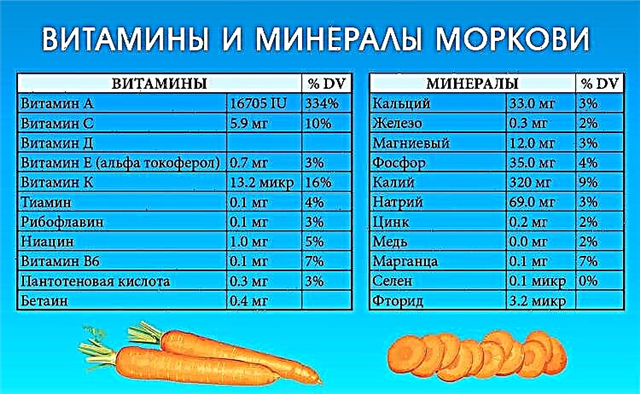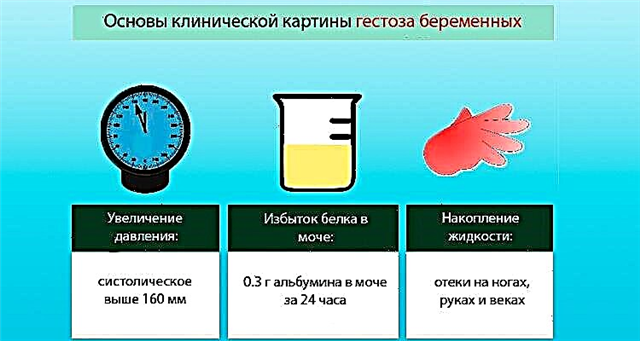The consequences of high blood pressure can provoke a stroke and other irreversible diseases, it is important to know about this and be able to prevent their occurrence.

Definition of disease
Faced with hypertension, many people let the disease take its course, without thinking how serious the consequences of high blood pressure can be (this also applies to refusing to take stabilizing medications when they feel better). In addition, the researchers proved that the disease can also proceed in a latent form, and given the work schedule of an uninformed patient, he tries to spend his free time at home, and not go to hospitals (due to regular, but not significant dizziness and pain ), which leads to serious consequences and complications of the disease.
Arterial hypertension is a cardiovascular disease that is common in all countries of the world. At the same time, the walls of blood vessels are narrowed, preventing the passage of blood inside them, and cause internal resistance. Consequently, the tonometer readings show values exceeding 120/80, and the patient's condition deteriorates significantly: pains appear in the chest space and head, general weakness, dizziness, numbness and other symptoms.
An increase in blood pressure can be compared, say, to watering a vegetable garden. If a very large volume of water is taken into a rubber hose, it will not withstand internal pressure and will become unusable. The same applies to blood vessels that expand from blood pressure, they can rupture. This is the danger of increased pressure inside the arteries.
Consequently, regular intravascular pressure provokes a number of deviations in the body's working capacity, which have been investigated by doctors and are officially recognized as diseases all over the world.
Progressive hypertension causes the following problems:
- Failure of the heart and kidneys.
- Tachycardia.
- Arrhythmia.
- Vegetovascular dystonia.
- Brain abnormalities associated with impaired memory and speech.
- Myocardial infarction.
- Intracranial and ocular pressure.
- Stroke.
- Varicose veins (can additionally provoke elephantiasis).
- Thrombosis.
- Atherosclerosis.
- Decreased vision.
With a prolonged increase in intravascular pressure, blood vessels suffer, because they lose their elasticity, and the thickness of the walls increases due to the accumulation of various substances on them. Consider this feature using atherosclerosis as an example:
Hypertension in combination with atherosclerosis is the most common occurrence. In atherosclerosis, atherosclerotic plaques are deposited on the intravascular walls, reducing the elasticity and lumen inside the arteries. Hence, resistance to blood flow appears. Then the heart still copes with the task (due to the frequency and strength of contractions), but does not receive enough blood, provoking angina pectoris or, as the people call it, angina pectoris.
If you do not pay attention to this problem for a long time, then blood clots form inside the arteries, causing a catastrophic shortage of blood in the heart. As a result, the soil is formed for myocardial infarction. Also, atherosclerosis, as a consequence of high blood pressure, in most cases affects the vascular system of the brain, causing a stroke, as a result of which a person may be bedridden (due to paralysis of the limbs), problems with the speech apparatus and memory will arise.
In some cases, due to atherosclerosis, which appears on the basis of blood pressure, the organs of vision are affected. Initially, this is manifested by "flies" in front of the eyes, especially with a sharp change in body position (from horizontal to vertical). And given that at this time increased intraocular pressure is activated, a person may partially or completely lose sight (due to the vulnerability of the retina).
Effects of hypertension on the heart
Essential hypertension affects the entire body, but the target organs that come under attack are most affected. First of all, such organs and systems are endangered: blood vessels and heart, brain, kidneys and organ of vision.
 It is worth noting that with increased intravascular pressure, the heart is exposed to a great load, because the main task of this organ is to provide the entire body with an optimal amount of blood. Consequently, less than normal blood enters the ventricles, and the heart begins to work more actively to complete the task. Then the person's heart rate increases.
It is worth noting that with increased intravascular pressure, the heart is exposed to a great load, because the main task of this organ is to provide the entire body with an optimal amount of blood. Consequently, less than normal blood enters the ventricles, and the heart begins to work more actively to complete the task. Then the person's heart rate increases.
Because of this factor, an increase in the cardiac cavity can be observed, diseases develop, and the working life of the main organ decreases. In this case, a person can observe shortness of breath and swelling of the limbs.
Consequently, if hypertension was not detected in a timely manner, then the heart begins to work unstably, causing a violation of intravascular blood flow and, as a result, the condition of the blood vessels themselves worsens.
On improving performance
It has been established that the normal readings of a tonometer in a healthy person should correspond to the range 110 / 120-70 / 60 mm Hg. Art., however, for some people, these values may be high or low, and any deviation (increase or decrease in tonometer readings) from the usual norm will manifest itself as a deterioration in well-being.
For example: if a person's usual pressure value was 140/50, while he felt good, then the increase in pressure in this case will be considered from 150/60 (and the previous indicators will be absolutely normal, despite the deviation), and they will begin to cause the corresponding symptoms : fainting, dizziness, general physical weakness. This factor has been assigned its own medical terminology - adaptation pressure.
Such a person should still constantly use a tonometer and be regularly examined by a cardiologist, because hypertension can proceed in a latent form and provoke sudden complications.

Heart disease (particularly hypertension) is very complex and unpredictable. The height of pressure affects each person differently, because each has its own adaptive hypertension, and if it deviates even by 10 mm Hg. post, there is a risk of mortal danger. Therefore, the earlier the treatment of hypertensive patients began, the more favorable the prognosis of the disease will be.
Mechanism of development of consequences
The consequences of arterial hypertension can be very different, but there are some that can cause serious trouble for the patient. A striking example of such a consequence is the hypertensive crisis.
- Hypertensive crisis... Hypertensive crisis is a conditional condition of the patient, in which the tonometer shows the minimum values of 180/120 mm. rt. Art. This ailment is a huge health hazard and occurs exclusively against the background of hypertension. Its duration can be individually from 2 hours to 2 days, leading to a stroke.
- Stroke... The more the body was exposed to bad habits, was poisoned by a bad environment and other factors that have a direct effect on the vascular system, the earlier it attacks a person. Most often, a stroke occurs against the background of hypertension. Damage to the body by a stroke leads to bad consequences, destroys the cells and blood vessels of the brain, leading to mental degradation, paralysis and speech difficulties.This is due to oxygen starvation of the brain, because, due to the blockage of blood vessels, blood does not flow to some parts of the brain, as a result of which the cells begin to die off, and their decay products penetrate back into the blood. Then there is an increased pressure inside the remaining vessels, which, unable to withstand the stress, burst, provoking intracranial hemorrhages. If the source that causes hypertension is not eliminated, it is at stages 2-3, and the person has already undergone a hypertensive crisis with a stroke, then measures should be taken immediately to avoid repeated attacks with a fatal outcome.
- Myocardial infarction... Myocardial infarction is a disease caused by severe stress or physical condition. It occurs against the background of angina pectoris and hypertension. In this case, fragments of the heart muscle die off. To provoke this attack, the heart must lack oxygen and nutrients for a long time. The characteristic symptomatology of the disease is severe pain in the chest space, radiating to one or both arms, jaw, back; dyspnea; feeling of fear.
- Cardiac ischemia... Ischemic disease occurs as a result of damage to the vessels themselves, while the working capacity of the coronary arteries is disrupted, causing a lack of oxygen in the myocardium and its starvation, as a result of which the left ventricle of the myocardium undergoes hypertrophy.
 Heart failure... The heart is the first to respond to changes in blood circulation associated with high blood pressure. Then the organ must increase its activity, and faster transport blood through the body, which leads to increased stress, entailing a thickening of the heart muscle and an increase in the overall size of the heart. As a result, the heart needs more nutrients, but this is excluded in this case. As a result, the organ begins to weaken, malfunction due to oxygen starvation, its walls become thinner and lose elasticity. Against this background, all organs and tissues do not receive a sufficient amount of nutrition. A person begins to feel tired, even after minor physical exertion, weakness, shortness of breath, puffiness appears.
Heart failure... The heart is the first to respond to changes in blood circulation associated with high blood pressure. Then the organ must increase its activity, and faster transport blood through the body, which leads to increased stress, entailing a thickening of the heart muscle and an increase in the overall size of the heart. As a result, the heart needs more nutrients, but this is excluded in this case. As a result, the organ begins to weaken, malfunction due to oxygen starvation, its walls become thinner and lose elasticity. Against this background, all organs and tissues do not receive a sufficient amount of nutrition. A person begins to feel tired, even after minor physical exertion, weakness, shortness of breath, puffiness appears.- Renal failure... Kidney failure develops if it is the renal arteries that are affected by hypertension, undergoing narrowing and provoking intrarenal pressure (in order to saturate the kidneys with oxygen and ensure their normal functioning, blood must flow easily and without interruption, but when the vessels are narrowed, it comes with tension, causing intravascular renal pressure) ... Then the organs cease to perform their functions well, accumulate waste and excess fluid.
- Eye damage... The organs of vision are affected no less than the heart and other tissues and structures of the body. This is due to oxygen starvation of the eye vessels, which narrow, their walls acquire abnormal (thickened) sizes. Then the arterioles (vascular trunks) and the retina begin to malfunction due to the obstructed flow of blood inside the eye.
Arterial hypertension is a purely individual disease characterized by indicators that are quite normal for one person, and in the case of another can cause the sad consequences of hypertension. It is strongly recommended not to let pathology take its course, always engage in the prevention of hypertension, get rid of bad habits, revise your diet so as not to overdo it with the use of salty, fatty foods, control cholesterol levels and regularly visit a cardiologist. This will allow timely identification of the initial stage of hypertension and cure it in full.

 Heart failure... The heart is the first to respond to changes in blood circulation associated with high blood pressure. Then the organ must increase its activity, and faster transport blood through the body, which leads to increased stress, entailing a thickening of the heart muscle and an increase in the overall size of the heart. As a result, the heart needs more nutrients, but this is excluded in this case. As a result, the organ begins to weaken, malfunction due to oxygen starvation, its walls become thinner and lose elasticity. Against this background, all organs and tissues do not receive a sufficient amount of nutrition. A person begins to feel tired, even after minor physical exertion, weakness, shortness of breath, puffiness appears.
Heart failure... The heart is the first to respond to changes in blood circulation associated with high blood pressure. Then the organ must increase its activity, and faster transport blood through the body, which leads to increased stress, entailing a thickening of the heart muscle and an increase in the overall size of the heart. As a result, the heart needs more nutrients, but this is excluded in this case. As a result, the organ begins to weaken, malfunction due to oxygen starvation, its walls become thinner and lose elasticity. Against this background, all organs and tissues do not receive a sufficient amount of nutrition. A person begins to feel tired, even after minor physical exertion, weakness, shortness of breath, puffiness appears.

